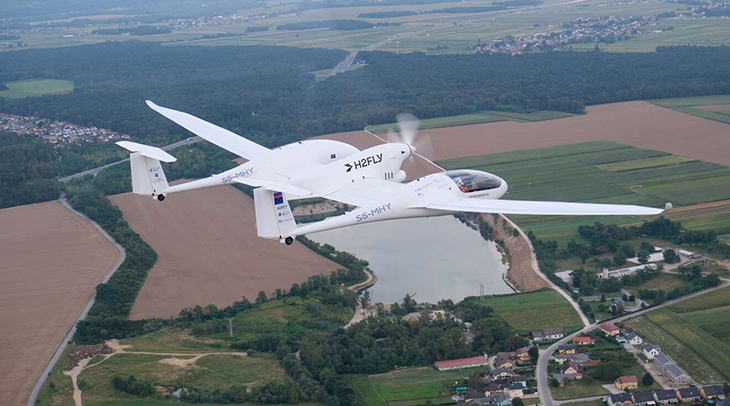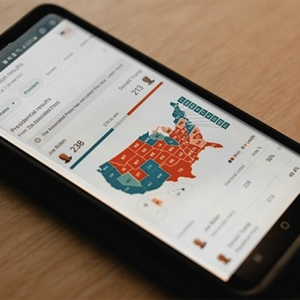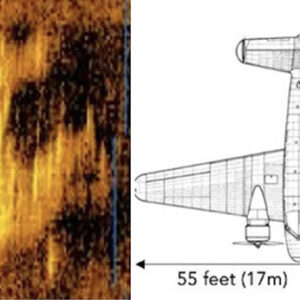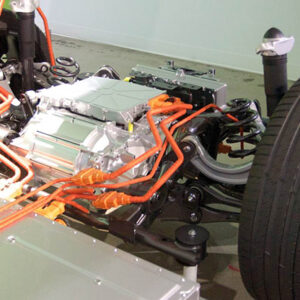
In a groundbreaking advancement for the future of aviation, H2FLY, an innovative company specializing in hydrogen-electric powertrain systems based in Stuttgart, Germany, has achieved a significant milestone. They conducted the world’s first piloted flight of an electric aircraft powered by liquid hydrogen.
This amazing feat unfolded with a series of four successful flights conducted in Maribor, Slovenia, marking a substantial stride towards emissions-free, long-distance air travel.
H2FLY’s pioneering approach revolves around the utilization of liquid hydrogen as a clean and highly efficient energy source for aircraft propulsion. These successful test flights represent a substantial leap forward in the quest to reduce carbon emissions in aviation.
One of the most noteworthy flights lasted for over three hours, highlighting the viability and potential of liquid hydrogen as a game-changing innovation within the aviation industry.
Perhaps the most remarkable aspect of this achievement is the way it effectively doubles the range of the HY4 aircraft, allowing it to cover an astonishing 932 miles (1,500 kilometers). This substantial improvement in range compared to traditional gaseous hydrogen propulsion systems is a game-changer, offering an exciting solution for extended flights and diversified applications in the aviation sector.
The company said in a statement, “Results of the test flights indicate that using liquid hydrogen in place of gaseous hydrogen will double the maximum range of the HY4 aircraft from 750 km to 1,500 km, marking a critical step towards the delivery of emissions-free, medium- and long-haul commercial flights.”
Over the past year, the Green News Network (GNN) has closely monitored advancement in hydrogen-electric flight technology, recognizing that liquid hydrogen holds the key to reducing aviation’s carbon footprint. In December, Rolls Royce and EasyJet made significant progress by successfully testing a hydrogen engine for a jumbo jet, setting the stage for larger aircraft to embrace this modern technology.
This year has witnessed two notable milestones in the realm of hydrogen aviation. Connect Airlines and Avia both conducted successful flights using green hydrogen fuel. Avia’s achievement was particularly noteworthy, operating a 40-seat ATR 72-600 regional aircraft during a 15-minute FAA Airworthiness Certificate flight.
On the other hand, Connect Airlines completed a 10-minute flight with a 19-seat aircraft named the Dornier 228, further highlighting hydrogen’s potential as a sustainable aviation fuel.
In a May report, GNN spotlighted the development of a Concord-like supersonic jet powered by green hydrogen. The brainchild behind this visionary project, Destinus, chose hydrogen as the fuel source due to its significantly lower weight compared to conventional jet fuel. Weight considerations are pivotal in the realm of supersonic travel, and hydrogen’s lighter profile offers a compelling solution for high-speed aviation.
However, H2FLY’s latest accomplishment with the piloted HY4 demonstrator aircraft, equipped with a hydrogen-electric fuel cell propulsion system, surpasses all previous milestones in hydrogen aviation. The use of liquefied, cryogenic hydrogen in their system has led to substantially reduced tank weights and volume. These advantages translate into an increased aircraft range and more space for carrying essential cargo, making this technology a game-changer in the industry.
As the world grapples with the pressing challenge of reducing greenhouse gas emissions and transitioning to sustainable aviation, the successful piloted flight on an electric aircraft powered by liquid hydrogen marks a watershed moment.
H2FLY’s achievement lays the groundwork for a future in which emissions-free, long-distance flight becomes a reality, ultimately reshaping the aviation landscape and contributing to a more sustainable and environmentally friendly future.
The aviation industry is on the cusp of hydrogen revolution, and H2FLY stands at the forefront of this transformative journey.
Professor Josef Kallo, co-founder of H2FLY, said, “This achievement marks a watershed moment in the use of hydrogen to power aircraft. We are now looking ahead to scaling up our technology for regional aircraft and other applications, beginning the critical mission of decarbonizing commercial aviation.”
Be a witness to the first liquid-hydrogen electric aircraft flight test in the video below:
What are your thoughts? Please comment below and share this news!
True Activist / Report a typo


